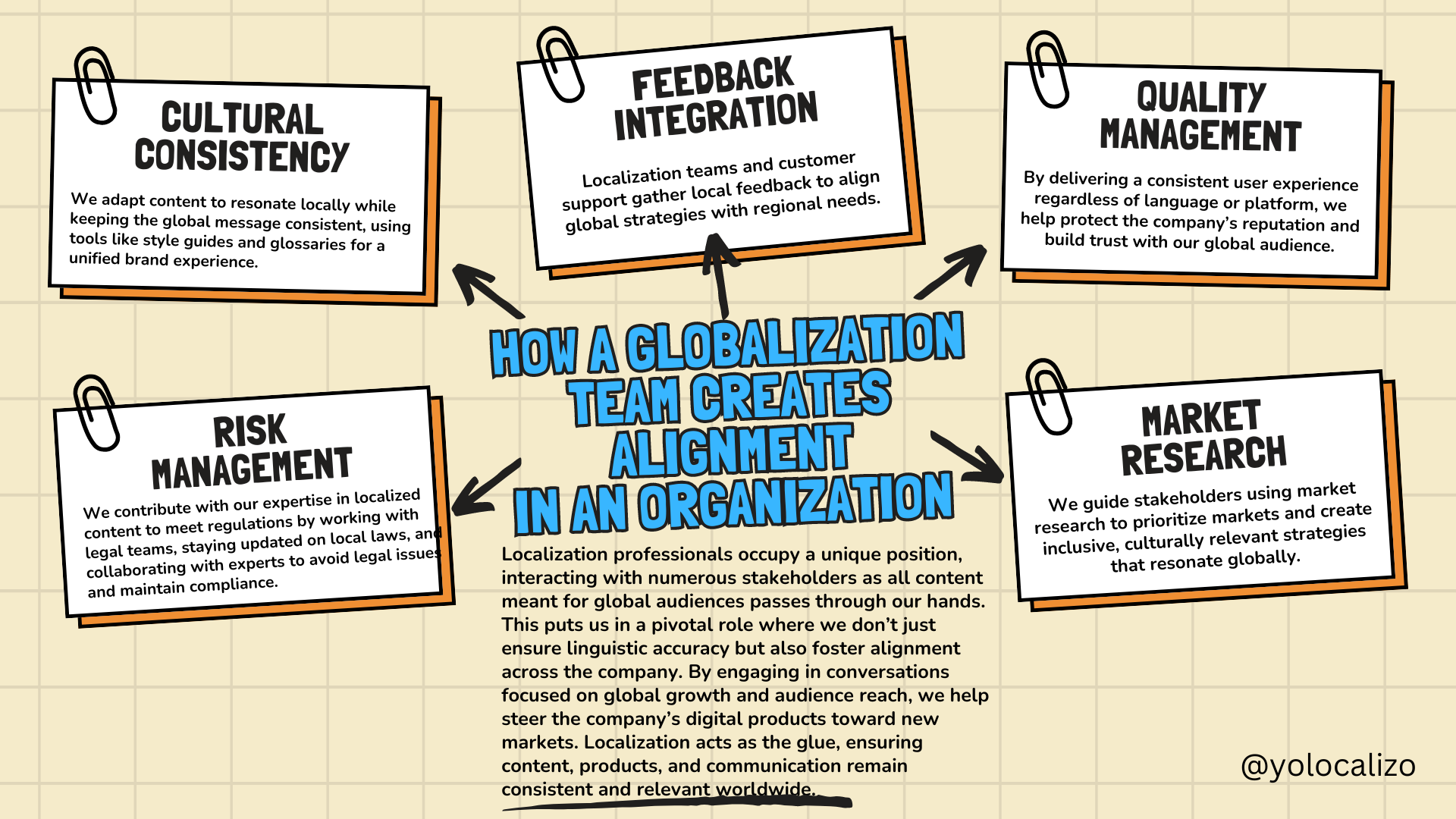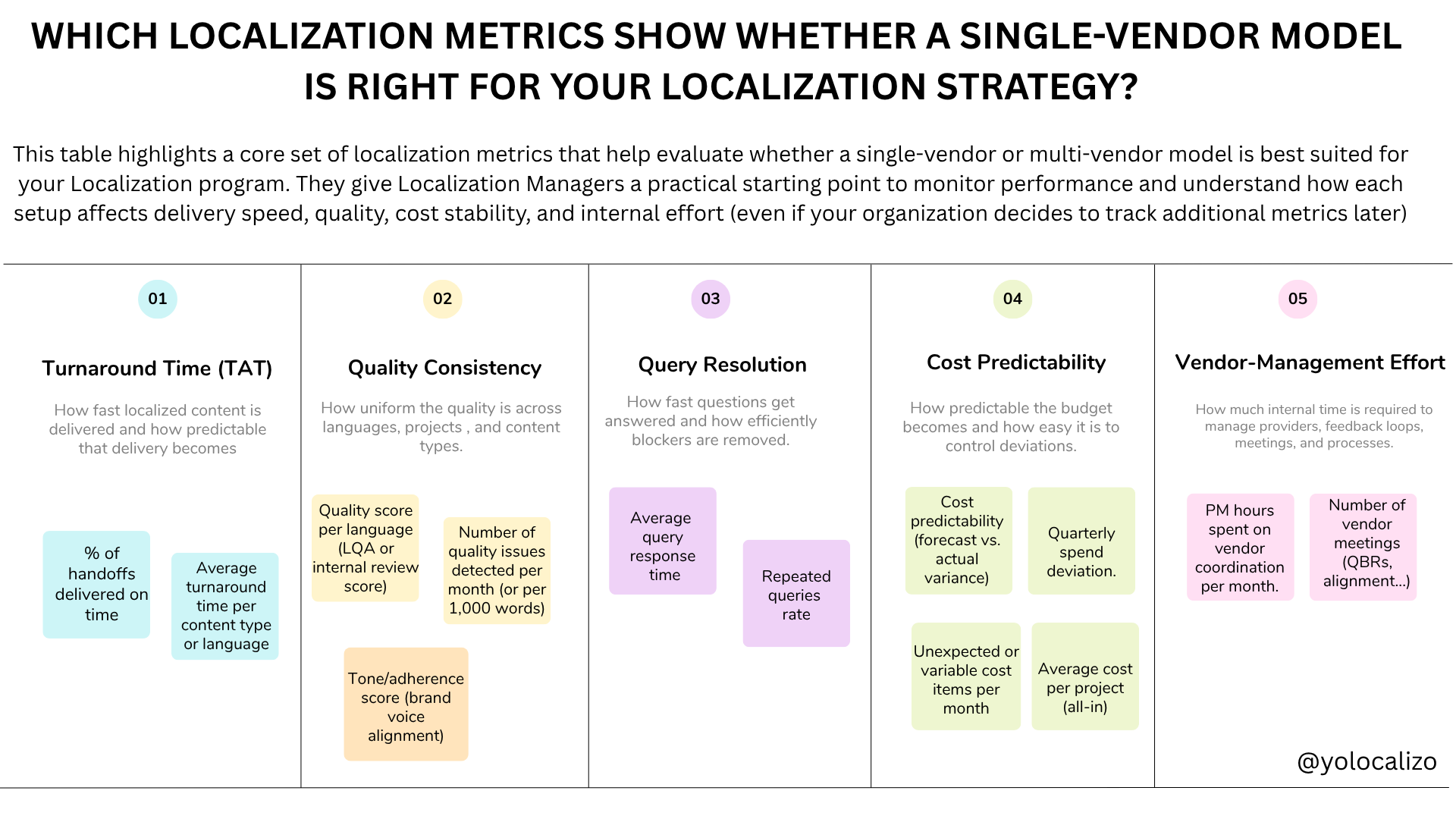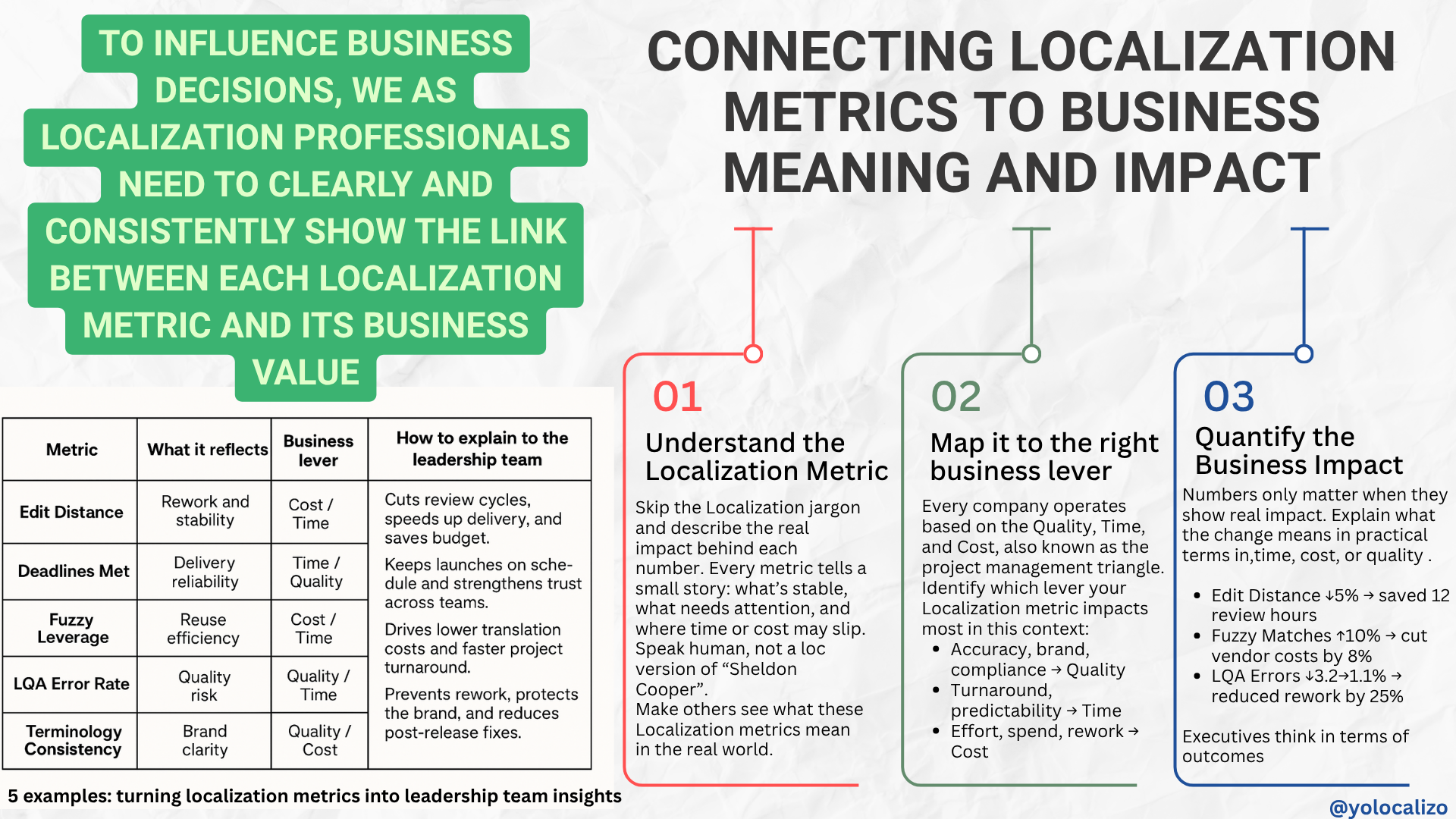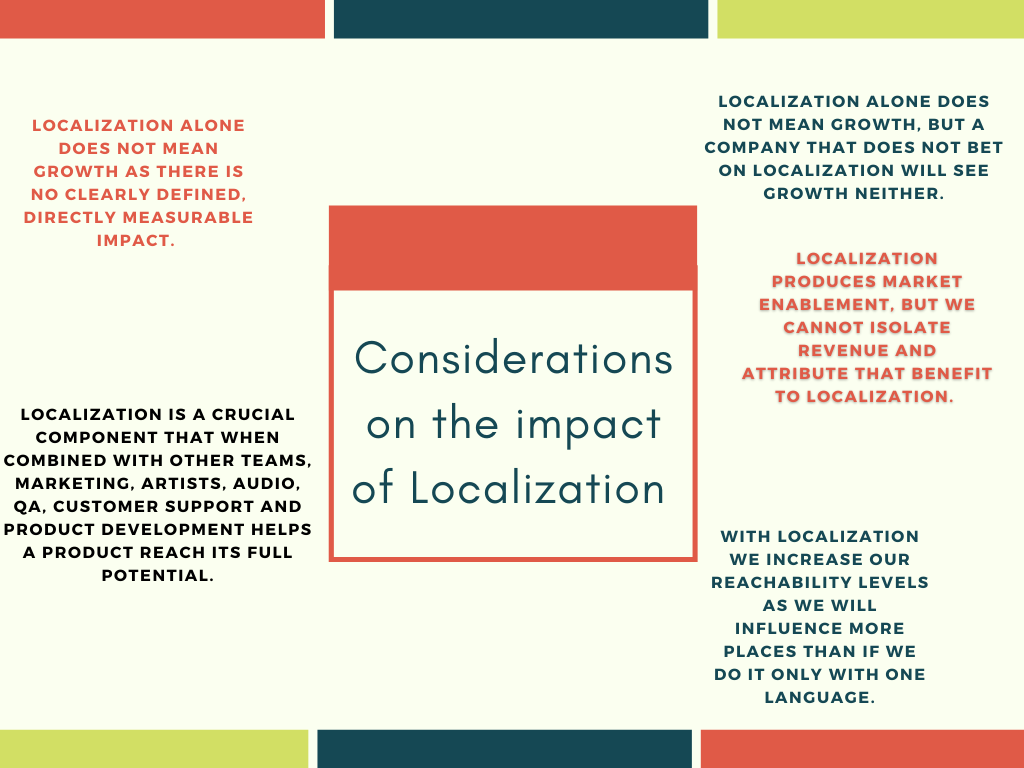Localization alone does not mean growth
Much has been written and talked about the ROI of Localization.
I think where we have failed the most as an industry is in the lack of alignment among ourselves when explaining how to measure the impact of Localization activities. Often conversations go in the direction of ROI of localization. That approach in my opinion is the biggest mistake.
Trying to measure Localization impact with the typical return of investment formula does not work.
That approach may work for a sales team, but it doesn't work for an audio specialist or artists, or Localization specialists.
The activities we execute are too diverse to box their impact under the typical ROI = Net Income / Cost of Investment formula.
I personally prefer to explain the impact of Localization not in the form of ROI but by explaining the different factors that influence Localization activities.
A Localization activity by itself does not generate a profit.
Imagine an app that we have localized into Italian.
Just because it is available in Italian, can we attribute the benefits generated to the fact that the product is in Italian?
Let's keep imagining, let's imagine that marketing invests 200K USD in user acquisitions in Italy, can we still claim that the profit is attributable to the Localization?
Of course, having the app localized helps a lot to penetrate a market.
Still, when the different areas of expertise of the other teams involved in creating the app are combined, it's when profit really happens
Localization produces market enablement, but we cannot isolate revenue and attribute that benefit Localization.
In the example above, what Localization does by having the product localized into Italian, is increasing our potential customer base in Italy, but if marketing does not help get those POTENTIAL customers to use our product, can we really talk about Localization impact?
Localization is, therefore, a crucial component that, when combined with other teams, marketing, artists, audio, QA, and product development, helps our product reach its full potential.
Only with Localization, the growth will not be what we expect. And for a company, without localization activities, there will not be the desired growth.
Instead of thinking of localization activities impacting a specific area, it is better to frame the conversation as Localization influences a wide range of metrics.
Localization helps to increase the reach of our software in different markets.
If I localize to 20 languages, I have increased my reachability levels as we will influence more places than if we do it only with one language. For that reason, we must monitor different indicators, different metrics that Localization affects, something that unfortunately is more complex to do than simply making a division and calculating ROI.
In my career in this industry, the closest I have come to measuring localization impact with a single metric is with A/B testing.
A/B testing is an easy experiment to understand but complicated to implement.
I remember once we prepared 2 versions of the same game, one localized and the other in English. Both versions were exactly the same, same functionality. The only difference is the language, but the rest is all the same. It is essential to organize it this way because if the functionality is not exactly the same, we risk comparing apples and oranges.
And I say that it is complicated to implement because it requires the full commitment of the product development team to organize this test for X weeks and take the time to analyze the data collected. And this in the Agile world we live in where the most important thing is to reduce the time to market as much as possible, is a luxury that we can rarely afford ... but in those cases where the roadmap is a little more generous, and you have the possibility to do an A/B test my recommendation is that you do it because it will be a metric that shows the impact of Localization.
Localization alone does not mean growth, but a company that does not bet on Localization will see growth neither.
To truly grow in a market and deliver a fantastic customer experience, there are many variables to consider; there are many metrics to compile and interpret, not just one.
If I could make one wish for our industry, that wish would be that we change our perspective and that instead of thinking that our localization work has an impact on a specific lever (ROI) we acknowledge that our work influences a wide range.
Which are those levers? Well, those levers will depend on your company's objectives, your localization programs, and your sector. But if you need some reference material, you may find these articles I have written in the past useful.
The Localization gap and a couple of ideas to close it
A Localization Strategic Metric to measure the impact of Globalization activities
What is your opinion on this topic? I would love to hear from you in the comments below on how you are dealing with the challenge of measuring the impact of localization activities.
Have a great week!
@yolocalizo













This feels like a pivotal moment. Localization teams are being asked to support more markets, move faster, use AI responsibly, and show impact, not just output. Expectations are higher than ever, but many teams are still trained mainly for execution. We are strong at delivering localization work, yet we often struggle to move from output to outcome and to clearly explain the impact of what we do.